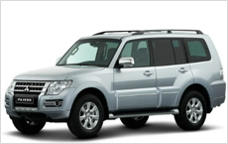
Renting a car for the first time can feel overwhelming, especially if you are unfamiliar with the process or unsure about what to expect. However, with a little preparation, renting a car can be a simple and stress-free experience. Whether you need a car for a weekend getaway or a business trip, knowing what to look out for and how to navigate the rental process will save you time, money, and frustration. In this guide, we’ll cover everything you need to know before renting a car for the first time.
Why Rent a Car?
The Convenience of Renting a Car
Renting a car offers flexibility and convenience. Instead of relying on public transport or expensive rideshares, having your own car allows you to explore your destination at your own pace. Whether you’re traveling for leisure or business, renting a car gives you the freedom to travel when and where you want.
NOTE:– Looking to rent a car in Dubai? Tauruscar Rental LLC offers a wide selection of well-maintained vehicles at competitive rates. Whether you need a car for business or leisure, we’ve got you covered. Contact Tauruscar Rental LLC today and enjoy a hassle-free rental experience in Dubai!
When Renting a Car is Ideal
- Road trips: Renting a car is perfect for long-distance travel, especially if your own car isn’t suitable for the journey.
- Traveling abroad: When you’re visiting a foreign country, renting a car gives you a sense of familiarity and ease of movement.
- Temporary needs: If your car is in the shop, renting provides a quick and easy solution to get around.
1. Choose the Right Vehicle for Your Needs
What Kind of Car Should You Rent?
The type of car you rent should fit your specific needs. Consider the number of passengers, the amount of luggage, and the type of driving you’ll be doing.
- Compact or economy cars: These are usually the most affordable option and are perfect for solo travelers or couples without much luggage.
- SUVs or larger cars: Ideal for families or groups with more luggage or for trips that require more space.
- Luxury cars: If you’re looking to make a statement or enjoy more comfort, luxury cars may be worth the splurge.
Think about your budget and driving needs before selecting the car type. For city driving, a smaller car may be more practical, while for long road trips or rough terrains, a more durable vehicle like an SUV may be a better choice.
2. Understanding Rental Costs
What’s Included in the Price?
It’s important to understand how rental car pricing works so you can avoid hidden costs. Rental companies often quote a base rate that looks attractive, but additional fees and taxes can quickly add up. Here’s what you should expect:
- Base rate: The advertised daily or weekly cost of the car rental.
- Taxes and fees: Often added on top of the base rate, including local taxes, airport surcharges, and rental facility fees.
- Insurance: Optional, but recommended, to cover damages or accidents.
- Fuel charges: Some rental companies require you to return the car with a full tank of fuel or will charge you for fuel at a higher rate.
Make sure to ask about all these potential fees upfront so you can get a clear picture of the total cost.
3. Do You Need Rental Car Insurance?
Understanding Insurance Options
Insurance is one of the most important things to consider when renting a car. There are several types of coverage available, and it’s essential to know what you need.
- Collision Damage Waiver (CDW): Covers damage to the rental car in case of an accident.
- Liability Insurance: Covers damage or injury to other people or their property.
- Personal Accident Insurance: Provides medical coverage for you and your passengers in case of an accident.
- Personal Effects Coverage: Protects your personal belongings inside the car.
Many credit card companies offer rental car insurance if you use their card to pay for the rental, so check with your credit card provider before purchasing additional coverage from the rental company. Additionally, your personal car insurance policy may cover rental cars, so it’s worth contacting your insurance agent to confirm what’s covered.
4. Age and Driver’s License Requirements
Minimum Age Requirements
Most car rental companies require renters to be at least 21 years old. However, drivers under 25 may face additional fees, known as young driver surcharges. Some rental companies set the minimum age at 25 for renting higher-end or luxury vehicles.
Driver’s License Requirements
To rent a car, you’ll need a valid driver’s license. If you’re renting a car abroad, you may also need an International Driving Permit (IDP), which translates your license into several languages. Make sure your license is current and valid for the entire duration of your rental period.
5. Fuel Policies and Mileage Limits
Fuel Policy Options
Rental companies have different fuel policies, and it’s important to understand the policy to avoid extra charges.
- Full-to-full policy: You pick up the car with a full tank of fuel and must return it with a full tank.
- Prepaid fuel: You pay for a full tank of fuel upfront and can return the car empty.
- Full-to-empty policy: The car comes with a full tank, and you return it empty. Be cautious with this option as you may end up paying for more fuel than you use.
It’s generally cheaper to refuel the car yourself before returning it, rather than paying the rental company’s fuel rates.
Mileage Limits
Most car rentals come with unlimited mileage, meaning you can drive as far as you need without worrying about extra charges. However, some rentals, especially luxury or specialty vehicles, may have mileage limits, with additional fees for exceeding the allowed mileage. Make sure to ask about mileage restrictions before finalizing your rental agreement.
6. Picking Up and Returning the Car
What to Expect When You Pick Up the Car
When picking up the rental car, you’ll need to present your driver’s license, credit card, and confirmation details. It’s important to inspect the car thoroughly for any existing damage before you drive off. Take photos of any scratches, dents, or damage and report them to the rental company immediately to avoid being charged for pre-existing damage when you return the car.
Returning the Car
Make sure to return the car on time and with the same fuel level to avoid extra charges. It’s also a good idea to take pictures of the car when you return it, especially if you’re leaving it at a drop-off point after hours, to avoid any disputes about the car’s condition later.

rent a car
7. International Car Rentals
Renting a Car Abroad
If you’re renting a car in another country, there are a few extra things to consider:
- Driving laws: Familiarize yourself with local driving laws and customs.
- Car insurance abroad: Make sure your insurance covers you internationally or purchase additional insurance from the rental company.
- Automatic vs. manual: Many countries, especially in Europe, commonly use manual transmission vehicles, so make sure to request an automatic if you’re not comfortable driving a manual.
Additionally, renting a car in countries that drive on the opposite side of the road (like the UK or Australia) can take some getting used to, so consider your comfort level with this.
Conclusion
Renting a car for the first time doesn’t have to be stressful. By understanding the rental process, knowing what to look out for, and being prepared with the right documents and insurance, you can ensure a smooth and hassle-free experience. Keep in mind the type of car you need, the total cost of renting, insurance options, and rental policies to make the best decision for your trip. With these tips in mind, you’ll be ready to hit the road and enjoy your journey with confidence and ease.
Note:- To read more articles visit emperiortech.











